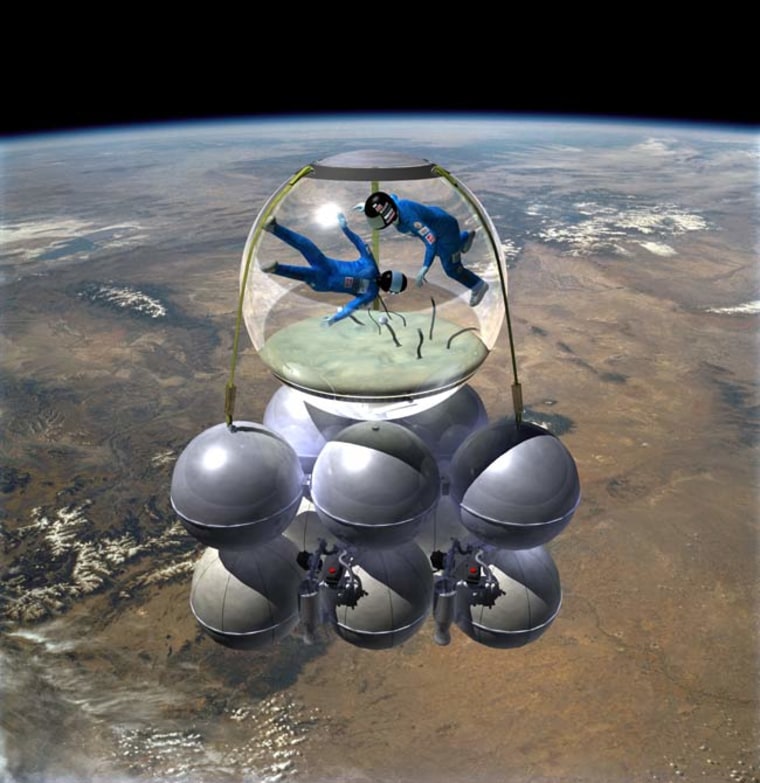Failure is not just an option — in fact, it usually comes standard in rocket science.
That was the take-home message from a panel of commercial space industry pioneers speaking about their burgeoning industry in a symposium here Oct. 20.
Executives from the suborbital spaceship company Virgin Galactic, and other private spaceflight efforts like Armadillo Aerospace and XCOR Aerospace all seemed to agree that a certain amount of flubs are inevitable in their business. The industry and the public must both be prepared for a certain degree of trial and error before private sector spaceflight really gets off the ground, they added.
"To expect success in flight tests is entirely appropriate, but to be surprised by failure is not," said Julia Tizard, operations manager for Virgin Galactic, during the 2010 International Symposium for Personal and Commercial Spaceflight.
While things have thus far gone relatively smoothly for the company — its SpaceShipTwo suborbital vessel made its first solo glide test Oct. 10 — there may still be significant bumps in the road ahead. Tizard said the media needs to improve its portrayal of such inevitable failures as hiccups rather than deal breakers. [Photos of SpaceShipTwo's 1st Solo Flight]
XCOR CEO Jeff Greason agreed, adding that sometimes fellow industry insiders are complicit in perpetuating misunderstandings.
"If your response to hearing about a problem that shows up on a flight test is you go off and Twitter to all your friends, 'Oh my god, it's the end of the world,' you're not helping," Greason said.
Commercial space, risky business
XCOR, like Virgin and Armadillo, is developing its own suborbital spacecraft designed to take tourists and scientists on brief joyrides that would reach space for a few minutes, but would not make a full orbit around the Earth.
In order to make the new commercial space industry successful from a safety and financial perspective, companies must have the freedom to take risks in testing without one failure marking the end of the business, Greason said.
"If we get used to the fact that when we can see behind the curtain ... that it doesn't always go right the first time, I think that not only will that help the industry survive ... but it will be the one thing that can bring back the culture of risk tolerance," Greason added.
For its part, Armadillo Aerospace has structured its budget to account for the possible loss of a ship or two during the flight testing phase before its vessels are ready to take on passengers, said Neil Milburn, VP of program management for the company.
"These really are R&D (research and development) vehicles," Milburn said. "It's a Darwinian approach — what works, works."
Want to fly in space? Test, test, test
The commercial space leaders highlighted the importance of testing not just their vehicles, but also their customers. Virgin has been doing G-force training with potential passengers to make sure the spaceship will offer an enjoyable ride.
"It means relatively little if you've got a really safe and tested spaceflight system and a good experience of space to deliver with it, if your customer hates every minute of it or gets ill during the ride," Tizard said.
The first passengers on SpaceShipTwo will be trailblazers in their own right, she said.
"Our customers are really part investors," Tizard said. "Our early customers are really the pioneers of our industry."
